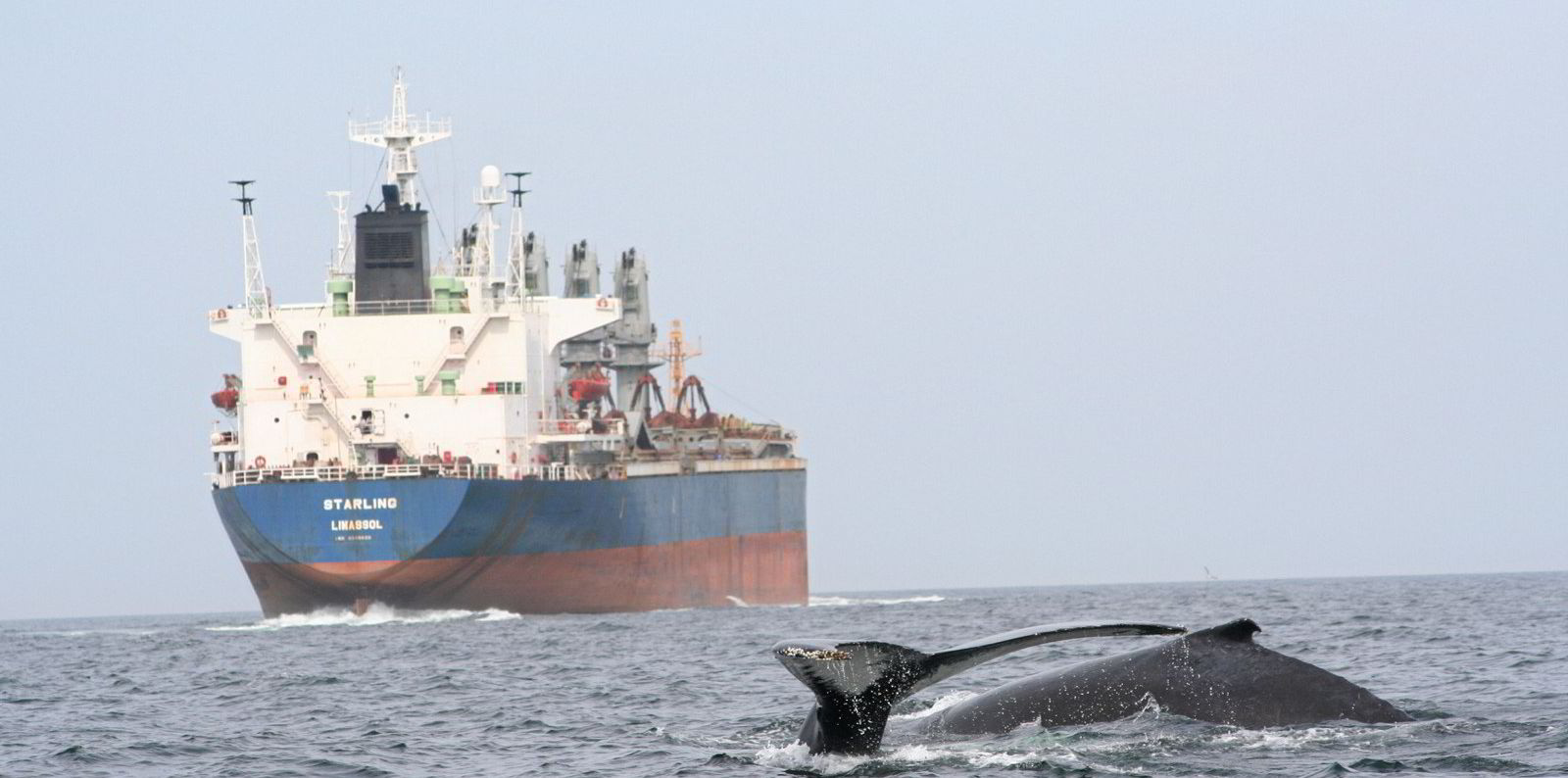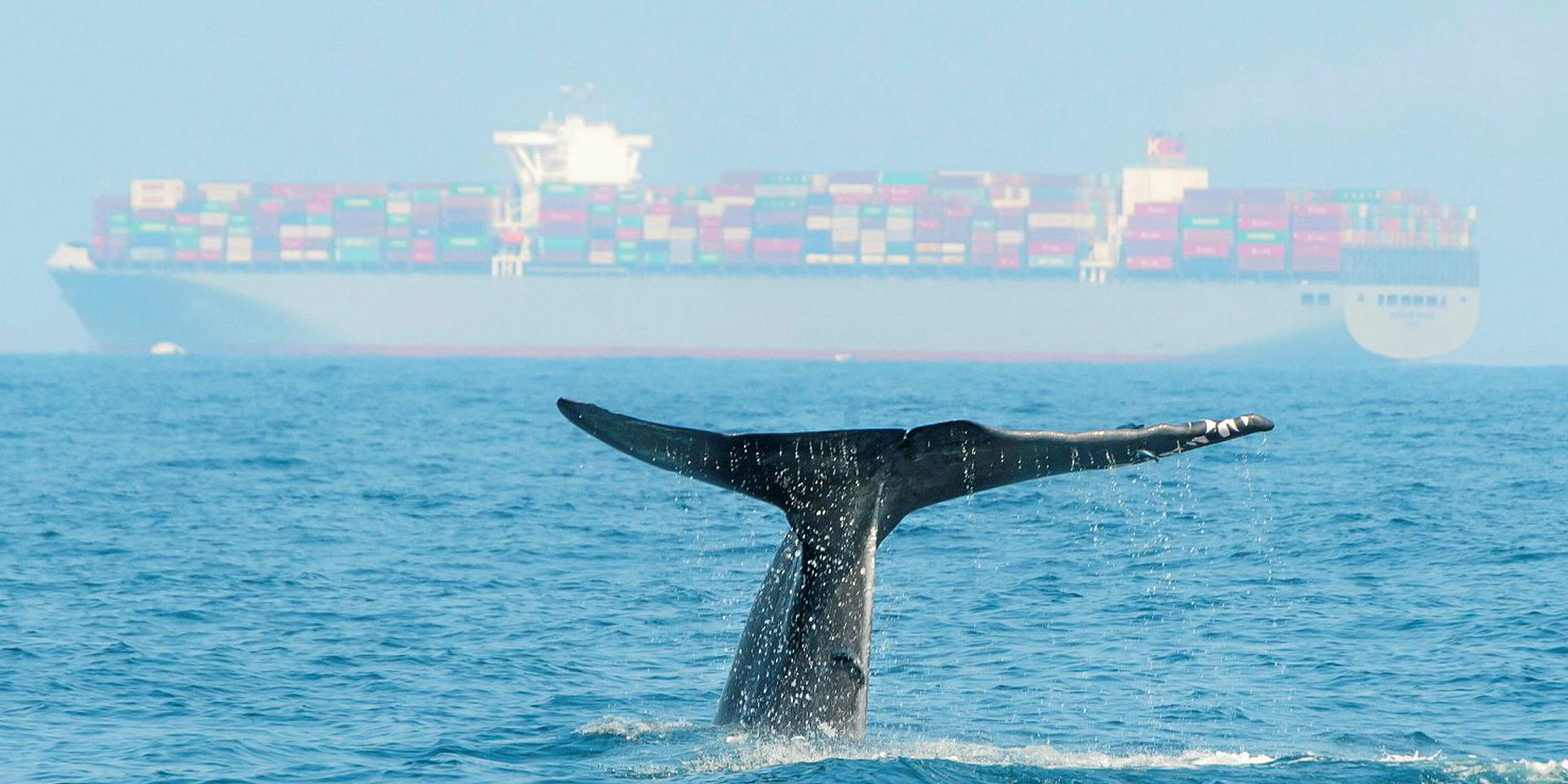Experts gathered in London on Monday to work out how the drive to decarbonise shipping can also cut underwater noise.
Noise caused by commercial shipping is increasing, particularly in polar regions, and damaging the ability of marine species to navigate, mate and communicate, the two-day meeting at the International Maritime Organization was told.
The transition to cleaner ships could also cut underwater noise, and environmentalists are looking to the working group to come up with ways of achieving both goals as quickly as possible.
“The noise generated by ships often overlaps with the hearing ranges and use of sound by marine species,” said Jack Westwood-Booth, the senior deputy director in the IMO’s marine safety division.
He said ship noise led to behavioural changes, affecting the development of marine creatures and ultimately their survival.
Analysts have warned that the IMO’s focus on cutting carbon emissions in the coming decades to reach net zero by 2050 could take away attention from noise reduction.
But campaigners have pointed to initiatives such as the greater use of wind power and slower steaming that will be beneficial for both ambitions.
The Clean Arctic Alliance said the most important source of continuous underwater noise is cavitation, the production of vacuum bubbles by propellers. It said at least 150 marine species have been reported to be affected by underwater noise, including whales, fish, crabs and zooplankton.
The experts were discussing guidelines updated this year from an initial set agreed in 2014, which have failed to have an impact.
“We feel that some level of mandatory regulation is going to be required,” said Sian Prior, the lead adviser for the alliance.
She is hoping for a triple win this week: measures agreed to cut emissions, reduce underwater noise and cut ship strikes with marine animals such as dolphins and whales.
John Maggs, president of the Clean Shipping Coalition, said: “This IMO workshop must identify and prioritise actions that will make ships quieter and reduce their climate impact.
“It is clear that there is a large overlap between measures that can be implemented quickly to reduce ship climate impacts and those that also reduce ship-source underwater noise pollution.”
Read more
- How will the UN’s plan to regulate the high seas impact maritime industries?
- Podcast: Protecting biodiversity where the ocean is untouched by national laws
- ABB mimics whales to come up with highly efficient new propulsion system
- Debate on noise rules being mandatory or not gets louder as IMO meeting starts
- Stolt Tankers re-routing ships and cutting speeds to protect whales





